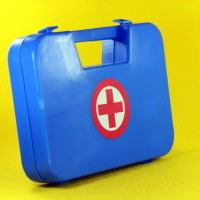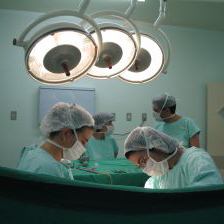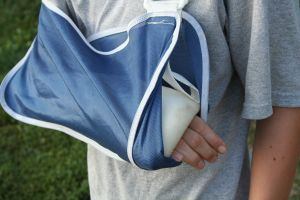Travel News
Travel Doctor Mark Wise On Avoiding Common Travel Ailments
 Dr. Mark Wise, director of the Travel Clinic and the author of Travel Health Guide: Everything You Need To Know Before You Leave, While You’re Away, After You’re Back, spoke with Peter about the top health issues that travelers face.
Dr. Mark Wise, director of the Travel Clinic and the author of Travel Health Guide: Everything You Need To Know Before You Leave, While You’re Away, After You’re Back, spoke with Peter about the top health issues that travelers face.
Peter Greenberg: Everyone is worried about health risks when they travel. It’s one thing to take along your regular prescription medicines if you need them.
And, of course, also to have the generic prescriptions so that other people in other countries will understand what you need. But there’s so much more you need to know about what you need to do based on where you’re going. So, for example, if I’m going to Africa the question always is, what do I do about malaria? Do I take the drug? I’ve seen too many people have bad side affects from the drug.
Dr. Mark Wise: Well I think you get informed. First of all, you find out if you’re going to an area with malaria. You find out the personal measures you can do like insect repellents or sleeping under mosquito nets. And then you have to educate yourself on the antimalarias. I know you’re referring to the one called Mefloquine, also known as Lariam.
PG: Yes, I am.
MW: Which was known for really weird dreams or anxiety, or trouble sleeping.
PG: Doctor, I saw people have to be med evac-ed out because of the side affects of Lariam.
 MW: That’s true, and it happened. We probably use less and less of it now. They are alternatives like Malarone, or Doxycycline. But again, between the doctor, the information on the Internet or in books, and the traveler, I think you can find out what you can use safely.
MW: That’s true, and it happened. We probably use less and less of it now. They are alternatives like Malarone, or Doxycycline. But again, between the doctor, the information on the Internet or in books, and the traveler, I think you can find out what you can use safely.
PG: So now here comes my next question because people are worried about mosquitoes. Not necessarily in Africa, they can be worried about mosquitoes in Long Island. And the question is, how much DEET do i need, and how dangerous is it?
MW: You know I think it is a real misconception that DEET is dangerous. I didn’t make that up myself: I hear that from the U.S. Army who tests it all the time. I believe in the States you can get about 50 percent DEET. That will protect you for about five or six hours. In Canada it’s about 30 percent DEET; not a lot different. I tell people: Don’t drink it, don’t put it in your eyes, don’t bathe your little children in it, and don’t put your iPod in it because it will melt plastic. But it won’t be bad on your skin.
PG: So it will melt your purse?
MW: Well again, that’s plastic, but try it on your skin, and I can almost guarantee that you’ll be fine.
PG: Is there such a thing as 90 percent DEET?
MW: You know, there used to be, and it’s used like sunscreen; the higher the number, the higher the concentration, the higher it lasts. Not that it’s more potent or more dangerous, it just has a longer duration of action.
PG: But 50 percent you’ll be okay.
MW: Yeah, I think so.
 PG: My next item up for bid has got to be Montezuma’s (or Moctezuma’s) Revenge. You know, people always have trouble when they travel because their body is not used to the basic normal bacteria that other people are used to in other locations. And, of course, out comes the Imodium. What do you say about that?
PG: My next item up for bid has got to be Montezuma’s (or Moctezuma’s) Revenge. You know, people always have trouble when they travel because their body is not used to the basic normal bacteria that other people are used to in other locations. And, of course, out comes the Imodium. What do you say about that?
MW: I tell them to be careful, and depending on the destination, we keep it simple. We say: Boil it, bottle it, peel it, cook it, or forget it. Most people make a mistake within 24 or 48 hours of arriving at their destination. First-class hotel doesn’t always mean you’re always getting first-class food, or first-class people handling your food. So you be as careful as you can be, or as you want to be. But yes, carry the Imodium, carry antibiotics like Septra. There’s an antibiotic in the States called Rifaximin, which is very good and very safe.
PG: And your doctor can prescribe that for you?
MW: Absolutely.
PG: You know, here’s the biggest mistake most of my friends make. You know that when you go to another country they always say: Don’t drink the water. So you try to follow that rule. So you think: Well, I can have a Coca-Cola, or I can have a beer. But the people who buy the soft drinks over there make one classic error: They’ll order a Coca-Cola … with ice.
MW: That’s right.
 PG: And what do you think the ice is coming from?
PG: And what do you think the ice is coming from?
MW: And it’s coming from the local water.
PG: Bingo, and you’re having a conversation with a porcelain telephone in about 15 minutes.
MW: Oh, and you’ve seen the ice with the holes in it? People think that that’s safe. I tell them that the hole is safe, the ice is not safe. And that doesn’t mean you have to label every ice cube in southern climates as bad, but you just don’t know.
PG: Of course one of the biggest offending countries is India. And yet, if you go to the bigger hotels like the Oberoi, they have an entire water purification system in the hotel with their own scientists doing 24-hour a day testing, and that water truly is purified.
MW: A lot of my patients go to India, and they are staying in tremendous opulence, and they’re still getting sick. So, you know India, Egypt, I have certain countries that I really come down on. I tell them not to trust anything.
PG: Well, from my own personal experience, I have to tell you, I have not gotten sick in India, because I’m either drinking the bottled water, or I am drinking the water at the hotels that I know is being purified. I’ve actually been down there in their basement labs watching them do it. They’ve got entire systems down there doing that.
 MW: Yeah, I traveled India and most of Africa without diarrhea. It’s quite possible. It takes being careful, and it takes a bit of luck.
MW: Yeah, I traveled India and most of Africa without diarrhea. It’s quite possible. It takes being careful, and it takes a bit of luck.
PG: Isn’t that the name of your new book, Doctor? India without Diarrhea?
MW: That’s a subtitle.
PG: What’s the one big mistake every traveler makes?
MW: Oy. I think the worst thing I worry about is motor vehicle accidents. We take that for granted. It’s not infectious. There are no mosquitoes. You know, just sort of letting itself go and doing other things in countries, or you’re on vacation that you wouldn’t normally do here. I think risk-taking is maybe the biggest problem.
PG: Well one of my common points of advice is people saying: We’re planning on renting a car in the United Kingdom, or in Australia and New Zealand. I go: Don’t do it. You’re driving on the wrong side of the road, you don’t understand roundabouts, and even if you’re not in an accident, you’re going to cause one.
MW: I agree. I’d be a little bit hesitant to drive in England, though I lived there once, and I did.
PG: So you lived to tell about it.
 MW: I worry about Africa where they drive on both sides of the streets at the same time in both directions. And I’m being again, a little facetious, but some countries it is pretty dangerous to drive. It is pretty dangerous to have somebody drive you as well.
MW: I worry about Africa where they drive on both sides of the streets at the same time in both directions. And I’m being again, a little facetious, but some countries it is pretty dangerous to drive. It is pretty dangerous to have somebody drive you as well.
PG: And it is also pretty dangerous to drive at 6 o’clock at night when they start drinking.
MW: Yeah, don’t drive at night, and look for something with seat belts.
PG: There are certain places in this world, to this day, I will not drive at night. Just because of that, and because there are no DUI laws or no enforcement in those countries.
MW: When I have long-term travelers and volunteers, I think the most important thing is wearing a seat belt.
PG: You know, that’s pretty good advice. One of my doctors put together for me an emergency medical kit. He put in and prescribed for me every known medicine that could possibly be needed by me in an emergency situation. You know, two or three pills of each with an explanation of what they are, and when I should ever want to use them. Thankfully, I’ve only had to use it once.
Tune into Peter Greenberg Worldwide Radio right here on PeterGreenberg.com, streaming live every Saturday 10 a.m. – 1 p.m. Travel Insiders can listen to even more special highlights, learn the benefits of signing up by clicking here.
Related links on PeterGreenberg.com:












